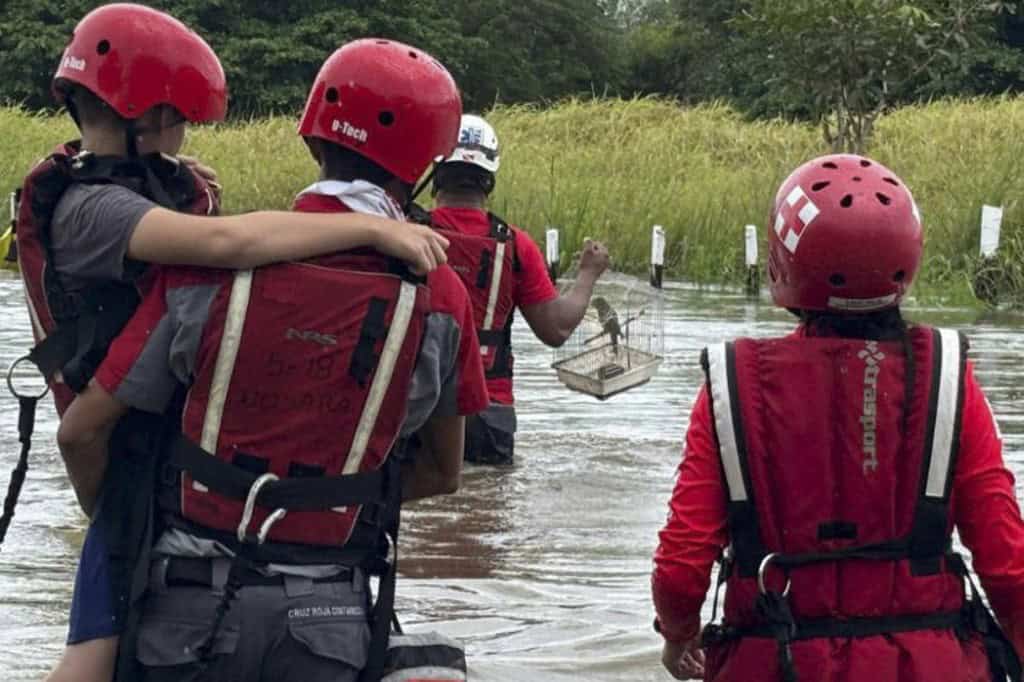Costa Rica continues to grapple with severe weather conditions as heavy rains persist across various parts of the country, causing widespread flooding, river overflows, and dangerous landslides. The situation has escalated since last week, prompting authorities to maintain high alert levels.
The National Emergency Commission (CNE) has extended the orange alert for most of Costa Rica, with only the South Caribbean region under a yellow alert. According to the National Meteorological Institute (IMN), heavy rainfall is expected to continue through Tuesday, November 12.
Saturation levels remain critical in the North Pacific, Caribbean, Central Valley, and Northern Zone, ranging between 85% and 100%. This heightens the risk of further river overflows and landslides. The province of Guanacaste has been particularly hard-hit, with over 1,000 people evacuated to 23 shelters. Communities in Filadelfia, Lepanto, Jicaral, and Carrillo have experienced significant flooding, with some areas completely isolated due to inundated roads and overflowing rivers.
In the Southern Zone, intense rainfall has led to severe flooding in communities such as Palmar Sur and Corredores. The Caribbean province of Limón has also suffered, with Pococí, Guapiles, and Toro Amarillo facing the brunt of the storms.The Costa Rican government has launched a Climate Adaptation Plan for Protected Wildlife Areas in response to the increasing frequency and severity of such weather events. This initiative aims to safeguard the country’s rich biodiversity while addressing the challenges posed by climate change.
Tragically, the number of missing persons has risen to four, according to the latest Red Cross reports. The search continues for a fisherman from Cuajiniquil de Santa Cruz, a woman last seen near the María Aguilar River in San José, a man who fell into the Torres River near Calle Blancos, and a fourth individual whose details have not been disclosed.
The Ministry of Public Education (MEP) has extended the suspension of classes nationwide due to the ongoing hazards posed by saturated soil and potential landslides. As the country battles these extreme weather conditions, the CNE urges citizens to remain vigilant and avoid crossing swollen rivers or damaged bridges. For any emergencies, residents are advised to call 9-1-1.
The Costa Rican government continues to monitor the situation closely, with emergency services working around the clock to assist affected communities and mitigate further damage.








